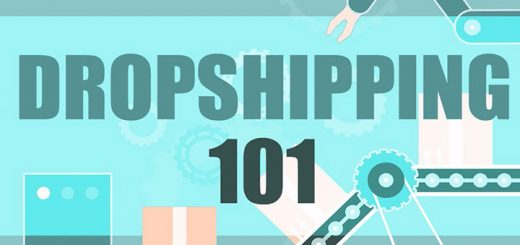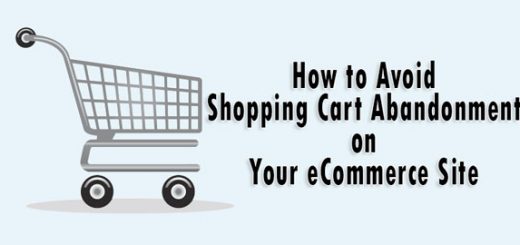Top 6 SaaS eCommerce Platforms in 2022
eCommerce is thriving like never before. With consumers becoming more and more comfortable buying online, it’s no surprise that eCommerce accounts for approximately 9% of all retail sales in the US. These stats tell us that eCommerce has plenty of room to grow.
If you want to start or run an online store, there are a lot of options on the market. But, let me tell you, it is A LOT. So, how can you start or run your business without getting bogged down by all the options? In this blog post, we’ll take a look at some of the best SaaS e-commerce platforms in 2022 that can help you achieve your goals.
What is SaaS eCommerce platform?
SaaS eCommerce platform refers to online stores that are hosted on the cloud. These stores are accessible through the Internet by users across the globe. These online stores allow businesses to sell products and other goods to potential customers.
What are SaaS eCommerce platform benefits?
With a SaaS eCommerce platform, you don’t need to spend thousands of dollars on special servers or on IT support to build an online store; instead, you can just pay a low-cost monthly fee to have the same online store. You, on the other hand, get access to updated versions of e-commerce’ platforms on a regular basis, often without having to install or upgrade anything on your own systems.
What are best SaaS eCommerce platforms?
There are many eCommerce platforms available, but most online stores choose a platform based on price alone. This can lead to a poorer choice than others. We’ve found the best SaaS eCommerce platforms for you. We’ve compared over 20 SaaS eCommerce platforms and narrowed it down to six.
1. Shopify
Shopify is a hosted e-commerce platform that allows you to create your own online store. Over the past ten years, the company has helped over 1,500,000 businesses launch online stores around the world.
With Shopify, you can create an e-commerce website, manage inventory, process orders, and handle shipping. Shopify also makes it easy to sell on social media with social commerce apps.
The Shopify platform is hosted, which means that you don’t need to buy or install any software to operate an online store. In addition, Shopify Plus offers powerful integrated apps, including apps that help you sell on marketplaces like Amazon and Facebook, apps that help you track inventory, and apps that let you interact with customers via live chat and email.
2. BigCommerce
BigCommerce is a hosted e-commerce platform that allows merchants to sell their products online. BigCommerce is a platform aimed at merchants of all sizes, even those with little technical knowledge.
BigCommerce offers a storefront design, a content management system, and a shopping cart in one convenient package. The platform also features 24/7 customer support, free SSL security certificates, integration with PayPal, Amazon Pay, and other payment gateways, and order processing through FedEx, UPS, and USPS.
3. Volusion
Volusion is an easy-to-use e-commerce platform that is designed to allow you to start an online store and manage it easily.
This platform allows you to easily build an online store based on your own unique brand. You can manage every aspect of your e-commerce business from one dashboard.
Volusion is ideal for eCommerce businesses that are just starting out or that have a small inventory.
4. Squarespace
Squarespace is a website-building service that allows you to create your own beautiful website quickly and easily.
Squarespace allows you to select a template that fits your business and customize it with content. You can add images, text, videos, buttons, forms, and more. Squarespace takes care of the technical aspects of running a website – including hosting, maintenance, security, and backup – so you can focus on building your business.
5. Big Cartel
Big Cartel is an easy-to-use online store platform that makes it easy for creative entrepreneurs to sell online.
Big Cartel has two key functions – it allows you to build an online store to sell your products and the products of others, and it allows you to sell your physical products online.
Big Cartel enables you to design your own store from scratch. You can upload your own images and write your own copy to describe your product. You can add features, including videos, galleries, and coupon codes.
Big Cartel enables you to sell physical products.
6. Wix
Wix is a drag-and-drop website builder that allows anyone to easily create a beautiful, professional website. As of this writing, Wix’s free plan provides access to over 500 templates – covering everything from small businesses to blogs to personal portfolios – and allows users to add essential features such as contact forms, image galleries, and shopping carts without any technical knowledge.
Wix’s free plan includes access to its own hosting and domain services. However, upgrading to one of Wix’s paid plans (which start at $4 per month) will give you access to Wix’s free domain hosting service, which allows users to register their own custom domain name without having to pay extra charges to third-party domain registrars.
Wix’s paid plans also allow users to customize their sites further by adding unlimited pages, videos, and images – or upgrading to one of Wix’s “advanced” or “pro” plans (which start at $12 per month) to access additional features such as toll-free and local phone numbers, branding and copyright tools, and SEO optimization tools.
Conclusion
We may have spent months writing this blog post, but we hope it helps you narrow down your choices. Keep in mind that there are a lot of great SaaS eCommerce platforms out there. However, we also know that picking the right one can be a difficult task. We hope we’ve helped point you in the right direction! Let us know in the comments which platform you decided on and how it’s working out for you.














